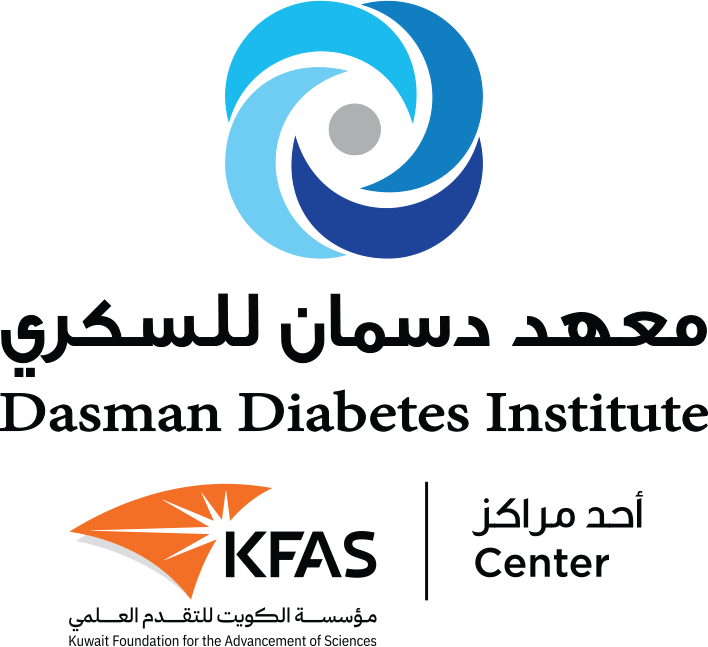
Researchers at Dasman Diabetes Institute Participate in Research Published in Nature Journal
Published on 05/07/2021
A study by the NCD Risk Factor Collaboration, a group of health scientists around the world that publish global studies on obesity, diabetes, cholesterol, and blood pressure, was published in the journal Nature. Monira Alarouj and Abdullah Alkandari, from one of KFAS’ centers, Dasman Diabetes Institute (DDI), joined the collaboration and study titled, “Repositioning of the global epicentre of non-optimal cholesterol.” The cholesterol levels of over 100 million adults in 200 countries were analyzed in the study from 1980 to 2018. Alarouj, a consultant diabetologist, and Alkandari, a postdoctoral fellow, both at lifestyles that include eating well and exercising, as well as improve access to effective medications.
DDI, contributed local data to the study. “We found that high cholesterol was responsible for almost four million deaths around the world and half of these deaths were in East, South, and Southeast Asia,” said Alkandari. “The results of the study revealed total and non-HDL [what is considered “bad”] cholesterol levels had fallen sharply in high income nations, particularly those in Europe and North America, while rising in low – and middle -income nations, particularly in East and Southeast Asia.” The results, according to Alkandari, should encourage the governments of countries most affected to draw up policies that will promote healthy.
The reason behind the changes in cholesterol levels, according to Alkandari, is a combination of diet and medication. In addition to diets changing in high-income western countries, people are also prescribed statin, a class of drugs that reduce total cholesterol levels in blood, he said. “The use of statins isn’t common in middle-income and lower-income countries,” Alkandari said. “In east and southeast Asia there’s been a rise in consumption of animal-sourced foods, refined carbohydrates and palm oil. This has contributed to the large increase in non-HDL cholesterol found in those countries.” In Kuwait, the levels of non-HDL cholesterol fell slightly in both women and men and Alkandari said this could also have been due to the increase of statin use. KFAS’ commitment to support science and foster a culture of research and innovation has paved the way for much of the scientific progress in Kuwait, according to Alkandari. Our contribution to this study was possible due to KFAS financial backing and partnership,” he said. “The support KFAS provides to researchers in Kuwait is invaluable.”


